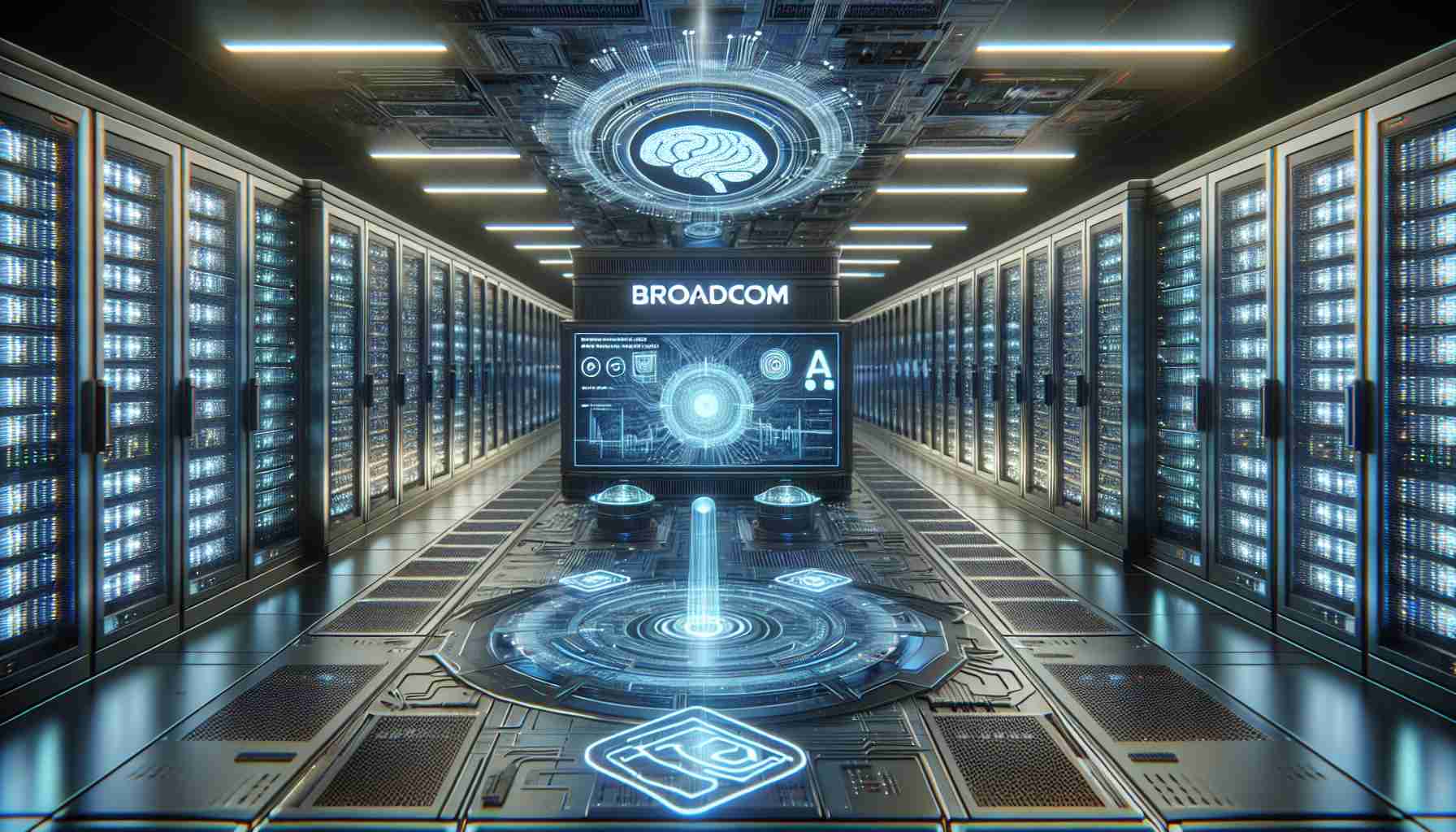The Rise of AI and Computing Power in Data Centers
The landscape of artificial intelligence (AI) and accelerated computing in data centers has undergone a significant transformation. Amidst this evolution, Broadcom stands out as a formidable force. The semiconductor industry has seen Broadcom’s shares surge by 390% over the past five years, signaling the company’s bright prospects in the ever-expanding realm of AI infrastructure.
Broadcom’s Expanding Portfolio in AI
Recent reports indicate Broadcom’s Networking semiconductor business has witnessed a substantial 46% growth year-over-year. With expectations of continued advancement, particularly in AI and data center services, Broadcom arrives at the forefront of this technological surge. Providing custom silicon AI services to major data centers, including those of tech giants like Alphabet, has cemented Broadcom’s role in the industry.
Innovative Products Driving Broadcom’s Success
Broadcom’s product line, featuring the AI-focused Jericho3-AI Fabric chip and Tomahawk 5 Ethernet switch chip, proves central to the company’s success. These chips are revolutionizing how data centers manage the influx of data, supporting the integration of GPU chips for AI training and laying the groundwork for the supercomputers of the future.
Broadcom’s Intersection of Hardware and Software
With the acquisition of VMware, Broadcom has expanded its reach beyond hardware into the enterprise software domain, introducing the Private AI Foundation. This is a strategic move that strengthens the company’s portfolio, enabling clients to seamlessly operate their AI capabilities through a synthesis of hardware and software solutions.
The Strategic Outlook of Broadcom’s Leadership
Broadcom’s CEO, Hock Tan, is renowned for his strategic approach to business, focusing on profitability and efficiency. The acquisition and integration of VMware exemplify this methodology, leading to expectations of revitalized growth. Following strong tech sector earnings and a predicted rise in data center spending, there is renewed confidence in Broadcom’s potential for stock market success.
**The Rise of AI and Computing Power in Data Centers**
AI and accelerated computing in data centers are key drivers of innovation, powering everything from cloud services to advanced analytics and machine learning applications. Broadcom’s remarkable stock performance reflects an industry-wide recognition of the critical role that AI hardware plays in this sector.
**Broadcoming’s Expanding Portfolio in AI**
In addition to its growth in networking semiconductors, Broadcom’s expansion in AI reflects a wider industry trend where semiconductor companies are diversifying their product ranges to cater to the demands of high-performance computing required by AI technologies. This trend aligns with the growing need for chips that can handle AI workloads, such as neural network processing and machine learning tasks.
**Innovative Products Driving Broadcom’s Success**
The Jericho3-AI Fabric chip and the Tomahawk 5 Ethernet switch chip highlight Broadcom’s commitment to meeting the demands of modern data centers. These products help enhance the speed and efficiency of data center operations, supporting the needs of AI and machine learning workloads. Notably, integrating AI capabilities directly into networking hardware is a significant advancement that could redefine data center architectures.
**Broadcom’s Intersection of Hardware and Software**
Broadcom’s acquisition of VMware signifies a strategic pivot towards blending hardware and software solutions, which is pivotal in the era of AI. This allows clients to develop, deploy, and manage AI applications more effectively by leveraging specialized hardware that is optimized for AI processes along with robust software ecosystems.
**Key Questions and Challenges:**
How will Broadcom maintain its competitive edge in the AI data center market?
Broadcom must continue innovating and expanding its AI-driven product line, keeping pace with rapid technological developments and client demands.
What are the challenges associated with merging hardware and software post-VMware acquisition?
Integrating VMware’s software suite with Broadcom’s hardware operations requires careful coordination to ensure compatibility and optimize performance.
**Advantages and Disadvantages:**
Advantages:
– Broadcom’s strong portfolio in AI and Ethernet switch chips can create a robust ecosystem for AI data centers.
– The acquisition of VMware provides a competitive edge by combining hardware and software solutions.
Disadvantages:
– Heavy reliance on a rapidly changing technology sector can lead to investments in innovations that may not pay off if market demands shift.
– Integrating large acquisitions like VMware can be complex and pose risks in terms of merging corporate cultures, systems, and product lines.
**Controversies or Concerns:**
Mergers and acquisitions on the scale of the VMware deal often lead to regulatory scrutiny, potential antitrust concerns, and the challenge of layoffs due to restructuring.
For more information on Broadcom’s endeavors in AI and data centers, visit Broadcom.
